Why study a master's with us?
Gain specialist training to tackle global challenges
If you have an undergraduate degree in geology, natural sciences, environmental sciences or a relevant engineering discipline, then our suite of geoscience and environmental science MSc courses could provide you with grounding needed to address global challenges.
All of our MScs have been designed with employers in mind, giving you the experience you need in the field and in the lab.
Master’s courses
Our master's in Earth and Environmental Sciences
Study a master's degree in the world's first industrial city and build your career in Earth and environmental sciences.
Pollution and Environmental Control MSc
Discover how we approach our Earth’s air and water pollution challenges and build the quantitative and qualitative skills needed to manage our environment.
Geoscience for Sustainable Energy MSc
Gain the skills needed by the energy industry and join the next generation of geoscientists leading the transition to net-zero.
Petroleum Geoscience MSc
Study at the interface of geoscience engineering and geophysics while developing the knowledge needed to meet the energy requirements of our modern society.
Why Manchester
Years of experience
We are one of the largest Earth and environmental science departments in the UK, with a vibrant community of staff, students and researchers. Our MSc courses equip graduates to succeed in the workplace or further study.
Our courses are well established. Our pollution and environmental control course is the oldest course of its kind in the UK and our energy geoscience courses are internationally recognised.
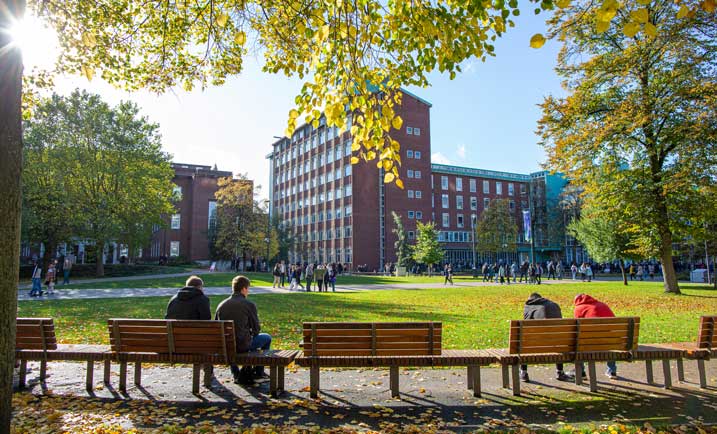
Excellent facilities
Study using world-leading facilities including:
- Mineral Analysis and Geochemistry laboratories
- Seismic, GIS and Visualisation workstations
- Molecular Environmental Science laboratories
- Atmospheric Measurement Facility with a research aircraft.
Also strong links with other facilities across the University including Materials Science and Manchester Computing.
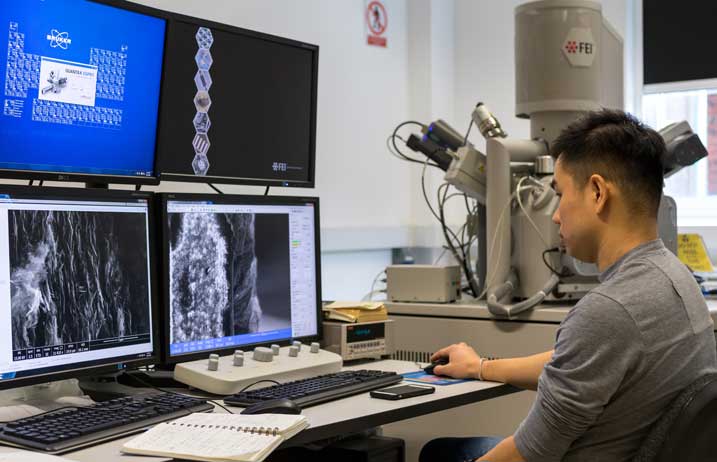
How you'll learn
Focused learning
In the first months of teaching on our MScs you will attend an intense timetable of taught modules of lectures, seminars, practicals and group projects to give you a strong foundation in your subject.
These will include the opportunity to get out of the classroom on day and residential field trips to examine geological outcrops or undertake experimental fieldwork, grounding your learning in the real world.
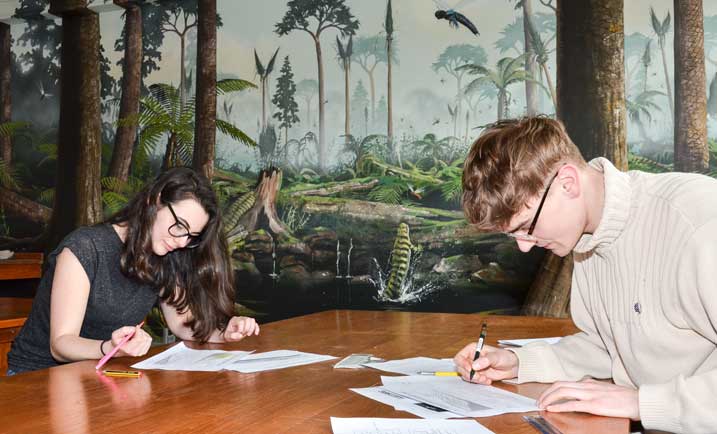
In the field
Students on our Energy Geoscience MScs attend three field trips during the year, in locations such as the Peak District, Dorset Coastland and Morocco.
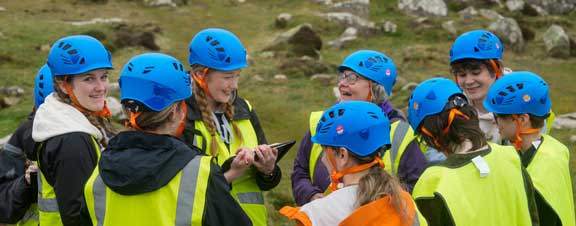
What’s in a course unit?
Course units focus on key areas in your subject. For example, our PEC course has two measuring and predicting units, focused on collecting, analysing and modelling real-world data.
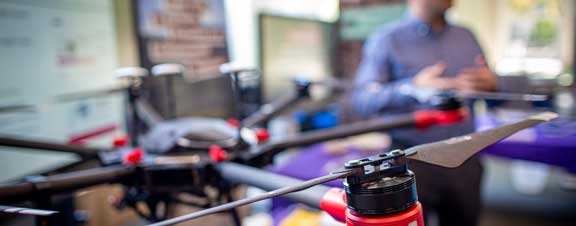
Dig deeper with a research project
In the last months of your master’s, you will conduct an independent research project allowing you to specialise in a theme you have learned about while at Manchester.
All projects are academic-lead, directed at current research problems, using real world data, practical skills, industry standard analysis techniques and computing methods.
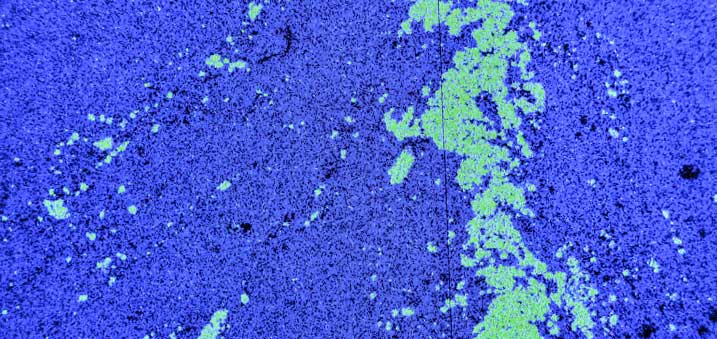
Careers
What do our graduates do?
Around one-quarter of our graduates use the research skills gained during their MSc project to continue into PhD study. Many students have the opportunity to work on industry problems during this time, gaining valuable experience and contacts.
Our graduates go on to become:
- Environmental and energy consultants
- Geoscientists
- Managing directors and CEOs
- Environmental scientists
- Researchers and academics.
Prajakta’s story
Ahead of her graduation, class of 2023 alumna Prajakta spoke with us about why she chose an MSc in Pollution and Environmental Control.
She also explained how time on the course prepared her for her role as an Environmental Consultant at Arcadis in Mumbai.
Careers service
At Manchester, we don’t just teach you — we support you in planning your future from day one. You’ll have the access to our award winning careers service.
Your careers advisors have put together a guide to preparing for your study at Manchester, and how to make the most of your time here.
How to apply
Apply for our Earth and Environmental Sciences MSc courses
If you’re interested in applying to one of our taught master's at Manchester, here’s what you need to know.
Contact us
Have any questions? Get in touch
Department of Earth and Environmental Sciences Postgraduate Admissions
- Tel: +44 (0)161 306 0888
- Email: pgt.earth.sci@manchester.ac.uk
